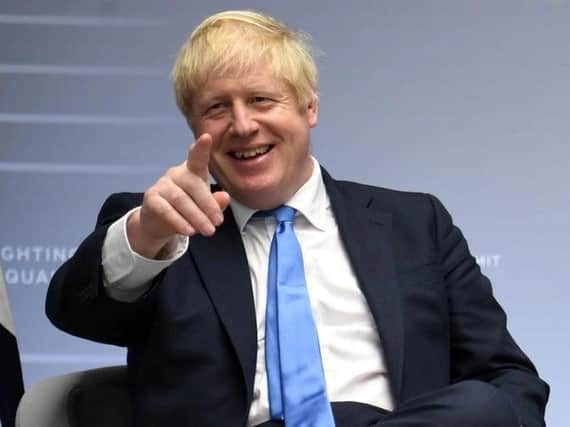UK government's refusal to consider Brexit extension is ‘reckless’ and ‘irresponsible’


Experts at the European Policy Centre said the contagion had not only impacted on the practicalities of the talks surrounding the UK’s departure from the EU, but had rendered it “extremely difficult” for both sides to move beyond technical negotiations given the demands of responding to the outbreak.
Fabian Zuleeg and Jannike Wachowiak from the European Policy Centre said that the prospect of the UK leaving the transition period without a future free trade agreement deal in place “could not come at a worse time,” and stressed that even a managed ‘no deal’ scenario “will create immense uncertainty for businesses and have severe economic consequences.”
Advertisement
Hide AdAdvertisement
Hide AdThe warning comes in a letter to MSPs on Holyrood’s culture, tourism, Europe, and external affairs committee ahead of their latest meeting tomorrow.
The transition period is due to end on 31 December unless the UK asks for a prolongation by 30 June. The maximum extension would be two years, under the terms of the withdrawal agreement.
In their letter, Mr Zuleeg and Ms Wachowiak wrote: “The UK’s outright refusal to discuss an extension seems therefore reckless.
“No matter what one’s hopes are for the future relationship, an outright refusal to contemplate an extension in face of a far- reaching and unprecedented economic crisis is irresponsible.”
The committee has also received written evidence from Professor Chris Grey, head of the department of human resource management and organisation studies at Royal Holloway, University of London, who said an extension to the transition period - ideally for a period of two years - was “vital” in the circumstances
He explained: “The unforeseen disruption caused by Covid-19 has reduced and probably destroyed even the small possibility of doing any meaningful trade deal by December, let alone ratifying it.
“Several rounds of planned negotiation have already been missed, key personnel on both sides have been ill, and videoconferencing is a poor substitute for face-to-face meetings for matters of this complexity,”
Mr Grey also pointed out that any extension to the transition period need not necessarily take the form of the UK request. He said the withdrawal agreement would allow it to be agreed by the joint committee without publicly having been initiated by either side.
Advertisement
Hide AdAdvertisement
Hide Ad“This is an important and often overlooked point, which might be significant in terms of UK domestic politics,” he added.
A message from the Editor:
Thank you for reading this story on our website. While I have your attention, I also have an important request to make of you.
With the coronavirus lockdown having a major impact on many of our advertisers - and consequently the revenue we receive - we are more reliant than ever on you taking out a digital subscription.
Subscribe to scotsman.com and enjoy unlimited access to Scottish news and information online and on our app. With a digital subscription, you can read more than 5 articles, see fewer ads, enjoy faster load times, and get access to exclusive newsletters and content. Visit https://www.scotsman.com/subscriptions now to sign up.
Our journalism costs money and we rely on advertising, print and digital revenues to help to support them. By supporting us, we are able to support you in providing trusted, fact-checked content for this website.
Joy Yates
Editorial Director
Comments
Want to join the conversation? Please or to comment on this article.